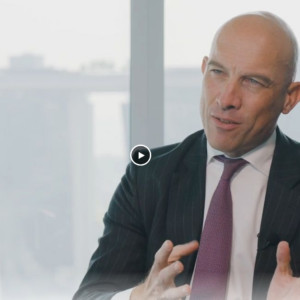Private banks will be defined by alternative investment skills

All the leading private banks are claiming to have expertise in managing private equity, hedge funds and other alternative investments, yet most are newcomers to the asset class.
The product offering and investment expertise of private banks in ‘alternative’ areas is becoming a key differentiator, when managing assets for their wealthiest clients. This includes private equity, private debt and infrastructure, but also encompasses real estate and hedge funds.
All leading private banks are busy touting this ‘expertise’ to their own client base as well as customers of rival banks. Key questions, however, remain: do they have the right people to manage portfolios tilted to these investments and are they actually any good at it?
Some banks have met this challenge through partnering with private equity firms, co-investing with them for ultra-high net worth clients. Commentators believe they have done this pretty well, particularly those banks with due diligence expertise, able to navigate “illiquidity premiums” for clients. Platforms like Titanbay and Moonfare have also made alternative investments more accessible to a broader audience.
But there remains a marked lack of expertise in both understanding and automating this sphere. This does not impress clients, who have become accustomed to more in their relationships with high-end providers in other spheres.
Public to private
There are exceptions to the flash-in-the-pan players hoping to profit from a new trend. HSBC has been planning this shift for 30 years, building up capacity accordingly. Its investments arm runs $65.5bn of assets across private markets, private credit, hedge funds, real assets and venture capital.
“We have seen a significant rotation from public securities to private markets – which is a huge area of our expertise, particularly as we are able to provide complex personalised solutions for clients,” volunteers Annabel Spring, CEO of HSBC Global Private Banking and Wealth.
HSBC forecasts two opportunities: broadening the opportunity set for private markets by monetarising sectors such as software, typically under-represented in public markets; and taking advantage of companies lingering for longer in the private realm, before committing to an IPO.
LGT is another wealth manager arriving well before the Johnny-come-latelies to this game, its founders having created the Princely Strategy to exploit alternative opportunities 25 years ago. After initial forays into private markets, they gradually added insurance-linked securities, private debt and impact investing expertise.
“Our owning family discovered the private markets as an asset class very early on,” says Olivier de Perregaux, CEO of LGT Private Banking. “This means our clients can benefit from this long-standing experience, which is why the LGT brand stands for innovative investment solutions.”
Recruitment consultants believe banks are getting better in overseeing alternative assets
Aligning the offer to the client base is also important. The likes of BNP Paribas, now targeting entrepreneurial families rather than high-society money, see this pivot as particularly timely. “Entrepreneurs are at the heart of the real economy through their businesses, so it is not a surprise that we would observe a real appetite for investing in private assets,” says Vincent Lecomte, CEO of BNP Paribas Wealth Management.
UBS aims to “simplify and humanise” this quest for alternative investment returns through its 3Ls framework, combining liquidity, longevity and legacy. Finding the right investment path, says the bank, is not enough. The results need to be communicated to clients in an intuitive manner, matching “the individual lives and dreams of our clients”.
Recruitment consultants believe banks are getting better in overseeing alternative assets. “Private markets are becoming mainstream and, with the help of product specialists and technology, wealth managers are increasingly well-placed to address the demand for advice,” suggests Matthias Schulthess, managing partner of recruitment consultants Schulthess Zimmermann & Jauch.
Family offices and the ultra-wealthy investors they represent have a choice of how to access these markets: through a wealth manager overseeing the portfolio; or approaching private market investment firms directly, now that these outfits focus on building out their own family capital and private wealth management coverage.
Mr Schulthess has run “several senior search assignments” for global and regional heads of family capital at these private market firms. Other headhunters are being assigned to similar searches for private banks, amid a limited pool of expertise.
Modest allocations
The truth is many private clients have become accustomed to limiting expectations, believing bankers do little more than managing relationships. “Private equity and other sophisticated derivative products especially are beyond the comprehension of most relationship managers,” believes Gerard Aquilina, partner with family office advisers Cone Marshall and previously a senior leader with the wealth management arms of Barclays and HSBC. This can be overcome with the backup of a top team of investment advisers, he suggests.
In reality, with the absence of product specialists to mitigate the challenge, most RMs, with limited training, can only recommend products they truly understand. This leads to a mismatch between wishes of CIOs and the daily reality of asset allocation at the coal face.
Expertise varies widely between competing banks, with the difference between the best and the rest colossal
The financial brains of the banks acknowledged the end of the TINA (there is no alternative to equities) era several years back. This intensified the search for alternatives and heralded a new era in private banking: expertise in esoteric assets would be a key determinant of its success.
Yet expertise varies widely between competing banks, with the difference between the best and the rest colossal. “Most of these players are newcomers to these asset classes and are still climbing the familiar learning curve,” says Amin Rajan, CEO of the Create-Research consultancy. “The long lock-in periods within a 2 & 20 fee structure makes manager selection a big challenge.”
The resulting allocations are far more modest than banks would either admit or lead us to believe. They are likely to remain so, while interest rates in key asset markets remain elevated, eating into easy returns of the past.
Fifteen years ago, private banks were found wanting when failing to manage their clients’ relationship with hedge funds. As we enter the mid-2020s, their success may be determined by how they negotiate challenges of similarly illiquid assets, this time focused on private markets.





